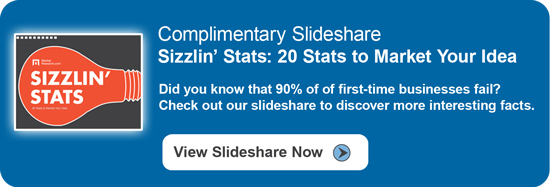
Focus groups and surveys are core pieces of a strategic marketing plan and market research, particularly during the post-market phase of starting your business and taking your product to market. Managing your product during the post-market phase is just as important as every other step in the process of starting a new business.
In our case study, a proposed launch of a consumer culinary device called the Dynamic Ingredients Dispenser (DID), we discussed the benefits of drawing upon Market Research reports and methods to help with taking a product to market.
By collecting real-time observations, comments, and reactions from clients, customers or potential customers, you gain valuable insight on how to improve your product branding, as well as a fresh perspective on the product itself.
Investors and business-owners who grasp at least the basics of how to collect and analyze customer insights are more likely to see healthier returns than those who do not. Knowing the difference, for example, between the kind of primary research that the Disney Company is conducting with Burbank pre-schoolers, and secondary research (forecasts and industry-wide "meta" business intelligence), can make a world of difference in terms of positively informing your marketing strategy and improving your company's prospects.
Market Intelligence as an On-Going Strategy
As outlined in earlier posts, we're highlighting the ways that deploying high-quality market research can increase your business prospects and investment decisions. Knowing how to wisely use market intelligence will provide a solid foundation for your product's success.
With actionable customer insights, figuring out your product's commercial viability is made less risky. Launching a new business or product involves a complex collection of steps and elements that have to fall into place before your product can enter the market, so being knowledgeable about the sector, your competitors and your customer's preferences is what will separate you from the pack.
In the crucial post-market phase, after you've secured financing and launched the product, there are a few key kinds of market research that you can consider an on-going part of your business strategy:
- Focus groups
- Online surveys
- Social media outreach
In all, the goal is to take the temperature of potential customers, to find out if they are aware of your product or the "solution" it represents -- in the instance of our Dynamic Ingredients Dispenser, making cooking and baking less messy and more efficient.
Your post-market surveys or focus groups can also help you determine if potential customers will view your product favorably, and if they see your product as effectively solving a problem or finding a solution to a matter that they think is important.
In addition, post-market surveys can be shaped to gauge whether your customers will recommend your product to friends, colleagues and family-members.
Know Your Customer's Needs, Preferences
It is also useful for gaining insights on areas of improvement you need to consider before going forward, says Guari Sharma, a market research expert in Chicago. Writing in Forbes Sharma said:
"You can and should use market research to not only validate your hunch but also to get clarity on consumers’ preferences and opinions when it comes to the problem you are looking to solve.
One of the most common market research mistakes I see is when clients look to test their new business idea. Some clients are focused on proving there is purchase intent right off the bat, before having delved into the problem they are looking to address. As a result, they may be testing an implementation of a possible solution that only solves part of the problem, and they lose the opportunity to develop their offering into a more holistic solution. In other words, they come into the market research process with too narrow a focus."
Ultimately, your idea-to-market pipeline needs to be solid yet flexible. You will need to understand the connection between distributors, retailers, advertisers and the media industries. Business intelligence focusing on each of those sectors will be needed as you expand your territory and build your client and consumer base. Our Market Research Specialists can not only help devise the market strategy you need, but find the market research solution to give the data to fill the pipeline as well. Contact us for a Complimementary Assessment so we can get started today.
In the case of our Dynamic Ingredients Dispenser, for example, its proud owner dreams of someday seeing the product featured on the Home Shopping Network (HSN) - in which case purchasing reports on the cable TV industry and on HSN and similar networks will be a necessary piece of preparing any "pitch" for gaining access.
Using actionable market intelligence, to better know your customers, your competitors and to map a safe path for revenue growth, is a great way to ensure your product's success.
Did you know that:
“The National Venture Capital Association estimates that 25% to 30% of venture-backed businesses fail.” More facts like this can be found in our complimentary Sizzlin Stats, by clicking below.
Thanks for reading!

Amy Alexander
Senior Writer and Content Manager
MarketResearch.com



